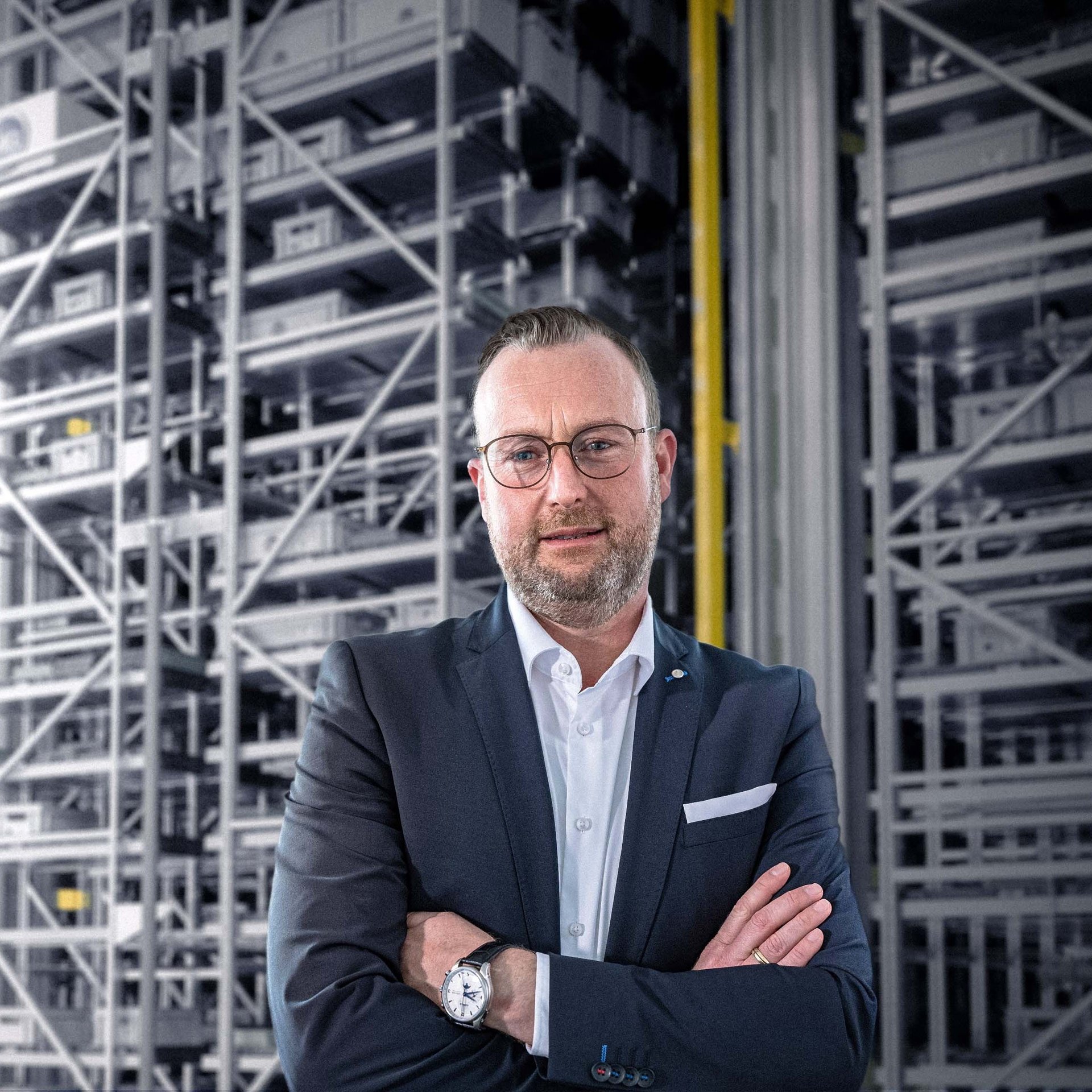There are too few containers, cargo ships are jammed in front of crowded ports, truck drivers are lacking – on top of that there is a shortage of raw materials such as copper, iron, magnesium, wood, and especially electronic components. What does this mean for Reinhausen's ability to deliver? And what comes after the crisis? Managing Director Holger Michalka explains how Reinhausen is responding to the current challenges and what will change in the long term.
"Reinhausen is ready to deliver!"
Supply chains around the world are jammed. Long delivery and waiting times are the result. Reinhausen can still deliver on time thanks to intelligent logistics chains.
"Reinhausen is ready to deliver!"
Supply chains around the world are jammed. Long delivery and waiting times are the result. Reinhausen can still deliver on time thanks to intelligent logistics chains.
Whether cars, toys or paper – there are supply bottlenecks almost everywhere. Is Reinhausen's ability to deliver still secure?
Yes, we stabilized our supply chains at an early stage and secured the supply for production in advance through intelligent warehousing. Our delivery time in the on-load tap-changer business is consistently six weeks and we are able to meet our deadline commitments 99 percent of the time. But this is not a matter of course. Corona shows us relentlessly how vulnerable the international movement of goods is. In some areas, with requirements for electronic components or chemical primary products, we are also noticing this, but overall we are riding out these special times in a stable manner.
How do you still manage to cope with the tense situation?
In the short term, in which our employees in purchasing, production and logistics react quickly, agilely and highly flexibly to current events. When it became apparent at the beginning of 2021 that there would be shortages of certain raw materials and products, we filled our warehouses early on. This also applies to seemingly banal items such as the wooden crate for transporting our on-load tap-changers. If that's missing, delivery is also at risk. But unlike other companies that have stretched their just-in-time concept to the limit in recent years, we are in a very good position. We have always worked significantly from local value networks, which makes us a long-term and reliable partner for our customers and suppliers. This is now paying off. The investment made in 2016 in our logistics with our new materials management center (MWZ) in Regensburg is now also paying off, because the demands on logistics have been changing for some time. This also has to do with foresight. The world is not changing because of the pandemic – but it is reinforcing all trends, be they positive or negative.
The Materials Management Center in Numbers
square metres total area
Employees
active material numbers
Pallet spaces
small parts trays
picks per working day
What trends do you mean in relation to the energy industry?
In general, the trend is towards ever shorter and faster orders. Customers want to tie up less capital and space and be able to react flexibly to production changes right up to the end. Speed is in demand here. Hence the investment in our MWZ in combination with the digitization and simplification of our ordering processes, e.g. in the components business. In the classic on-load tap-changer business, orders are placed with longer lead times, but then require delivery on the exact day and at the exact time of assembly.
„We are a reliable partner even in difficult times!“
What else will change?
Geopolitical and geoeconomic developments are shifting the globally known supply and relationship structures. Procurement strategies will change fundamentally. So-called second-source strategies, which are designed to avoid dependence on just one supplier, are gaining in importance. Risk management is also becoming increasingly important. To remain successful, companies will have to pay significantly more attention to the procurement and hedging of raw materials – even beyond the current crisis. Locality, i.e. the proximity of the supplier to production, will again play a greater role. This has not only to do with availability, but also with another very big issue: Sustainability and reduction of CO2 emissions. I believe that the ecological footprint will play a far greater role in purchasing and investment decisions in the future. We are preparing for this.
What are you doing about this?
To give our products a better carbon footprint, we have been investing in energy-saving and energy-efficient technologies at our sites and production plants for years. In addition, we traditionally rely on close local partnerships with our suppliers. With our production sites in China, India, USA, Italy and Germany we are strategically and globally well positioned. And as far as our procurement strategy is concerned, we have rethought our business continuity management – we have done very well with this so far during the crisis.
When do you expect the current situation to ease again?
That is difficult to estimate. We expect the situation to drag on well into 2022. This mainly affects electronic components and chemical precursors, where we even expect the situation to worsen in some cases. We will continue to monitor developments closely and safeguard our supply chains. We are a reliable partner even in difficult times!
About the Person
Holger Michalka joined Wilfried Breuer and Dr. Nicolas Maier-Scheubeck as Managing Director of the Reinhausen Group in 2020. Previously, he worked for 15 years at RITTAL, a leading system supplier for control cabinets, in various management positions in Germany and abroad. At Reinhausen, he is responsible for the "Products & Operations" division and thus also for the issues procurement and logistics.


